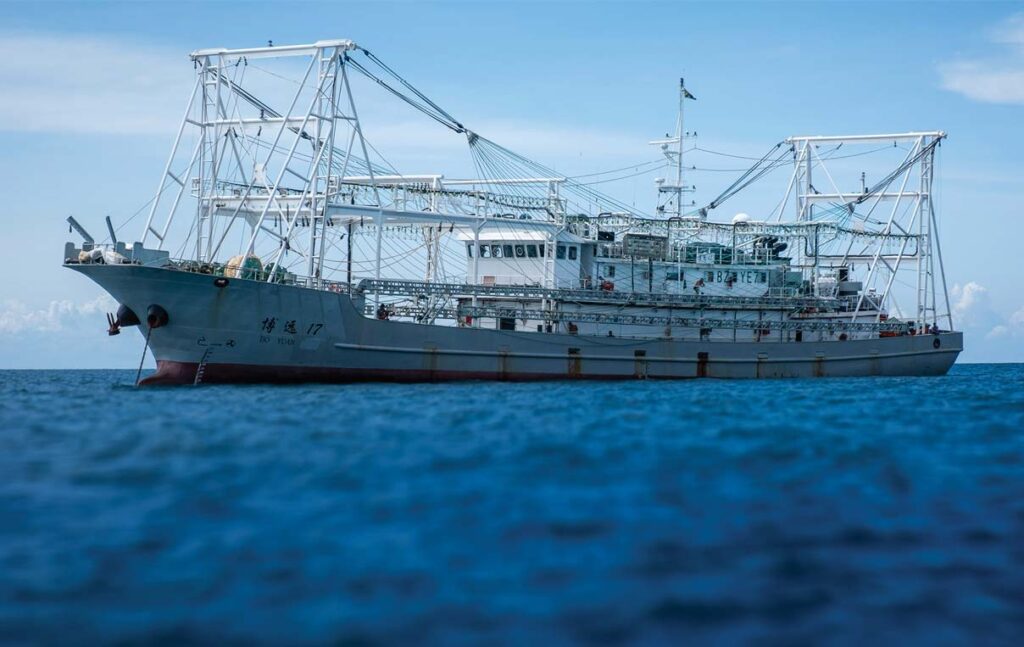Foreign fleets, predominantly Chinese and South Korean, dominate West African waters, reaping profits while local economies suffer. Industrial vessels engage in destructive practices such as saiko, a form of transshipment whereby large trawlers offload catches onto smaller boats for resale. A 2024 Environmental Justice Foundation (EJF) report said that saiko accounted for more than 100,000 tonnes of illegally caught fish in Ghana in a single year.
Chinese vessels are the most prolific offenders, catching an estimated 2.35 million tonnes annually in the region – half of China’s distant-water fleet catch, valued at $5 billion. This overexploitation devastates artisanal fishing communities. In Ghana, artisanal fishers have seen a 40% decline in income per canoe over the past 15 years. Local fishermen, like Ghanaian community leader Nii Gortsui, are calling for designated fishing zones to protect their livelihoods.
“The authorities must demarcate zones on the high seas to protect local fishermen,” Gortsui told Africa in Fact.
West Africa has become the global epicentre of illegal, unreported, and unregulated (IUU) fishing. An estimated 20% of the world’s illegally caught fish come from these waters, costing the region more than $2 billion annually. While the fishing sector is vital for the livelihoods of millions in coastal countries, poor management and unchecked exploitation by foreign vessels are pushing the region’s fisheries to the brink.
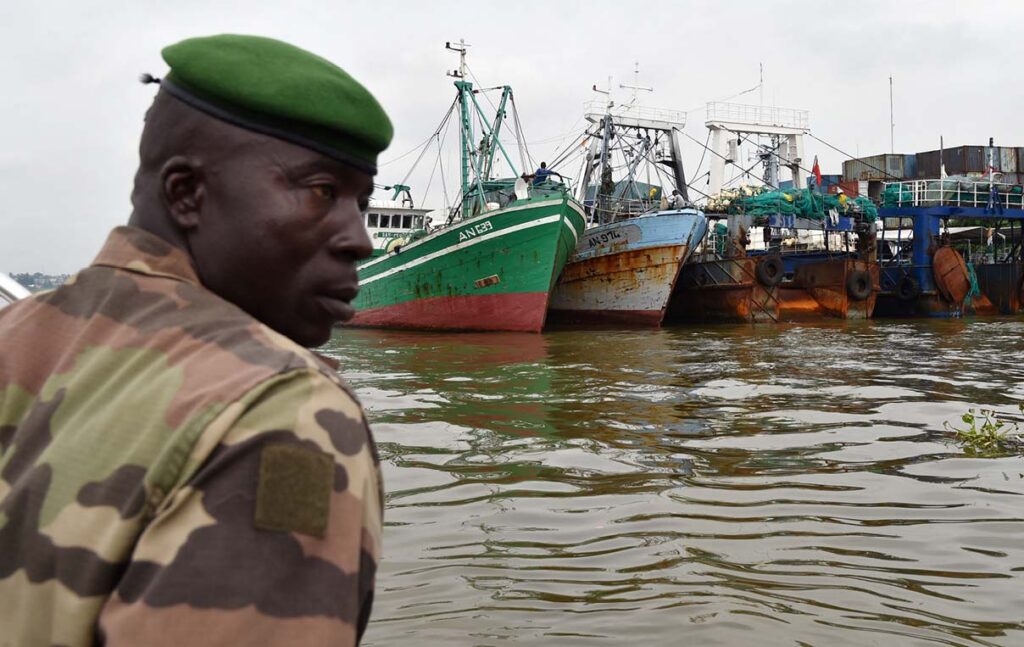
IUU fishing poses a serious threat to food security, economic stability, and marine biodiversity in West Africa. Factors such as weak enforcement capacity, overfishing, pollution, and climate change exacerbate the crisis. Maxime Diomande, head of Côte d’Ivoire’s National Fisheries Monitoring Centre, has underscored the urgent need for action against IUU, saying it was “a major scourge and a challenge for the sustainable management of fish stocks”. Côte d’Ivoire alone loses $1.5 million annually to illegal fishing, reflecting the broader regional crisis.
The competition between artisanal fishers and industrial trawlers is not only economic; it can also get physical. Catch shortages often force artisanal fishermen to venture further out to sea, exposing themselves to greater risks, and violent encounters with industrial vessels are increasingly common. Togolese fisherman Alipui Mauko recounts his experience of encounters with armed Chinese trawler crews: “They destroy our nets and fight us. Some even shoot when they see our canoes,” Mauko told Africa in Fact. In 2020, three Mauritanian fishermen died after a Chinese vessel struck their canoe. Such incidents highlight the human cost of IUU fishing, as local fishers risk their lives in already precarious conditions.
IUU fishing affects not just fishermen but entire communities. Declining fish stocks undermine food security and reduce incomes, exacerbating poverty and inequality. Women play a significant role in fish processing and marketing and are particularly hard hit. A 2023 Environmental Justice Foundation (EJF) report found that 78% of fishers and processors in West Africa struggle to feed their families due to diminishing catches.
Environmental damage is another consequence. Industrial vessels often use harmful methods such as fish aggregating devices (FADs), which attract juvenile and protected species, further depleting fish stocks. Overfishing disrupts ecosystems and contributes to the disappearance of species critical to marine biodiversity.
However, efforts to combat IUU fishing have gained momentum. Regional programmes, such as the West Africa Regional Fisheries Programme, supported by the World Bank and International Development Association (IDA), aim to strengthen monitoring and enforcement. The European Union’s PESCAO project, which concluded in 2023, focused on enhancing regional governance and fisheries monitoring. It trained 766 agents and conducted 17 joint patrols, yielding promising results.
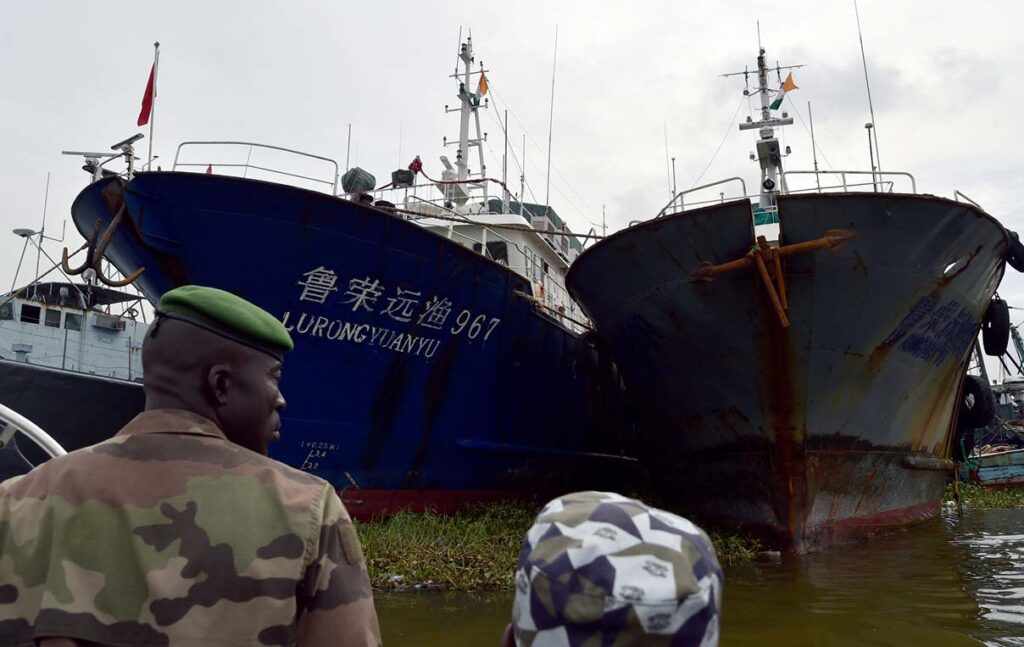
The Togolese government has also enacted stricter fishing laws, including fines and imprisonment for violators. However, enforcement remains a challenge. High operational costs, corruption, and limited resources hinder surveillance efforts. Boubacar Ba, head of the Monitoring, Control, and Surveillance Department of the Sub-Regional Fisheries Commission (SRFC), has noted that a single patrol boat costs billions of CFA francs and is beyond the reach of many countries.
Experts agree that sustainable solutions require a participatory approach that involves local fishers. Togolese fisherman Awoudja Nyawudzi believes equipping artisanal fishers with technology to report illegal activities could enhance enforcement. “The cooperation of national navies with fishermen could help. Authorities must provide tools to signal trawlers fishing illegally,” he told Africa in Fact.
Non-governmental organisations are stepping in to help fill gaps. Groups like Sea Shepherd have partnered with coastal states to combat illegal fishing, leading to the arrest of 55 vessels in recent years. Collaborations like these highlight the potential for grassroots and international efforts to complement state initiatives.
Legal reforms are also crucial for tackling IUU fishing. The 1982 Montego Bay Convention (also known as the United Nations Convention on the Law of the Sea [UNCLOS], which established exclusive economic zones (EEZs), provides a foundation for regulating marine resources. Countries like Senegal have updated their fisheries laws to include harsher penalties for illegal activities. Senegal’s revised code introduces higher fines, vessel confiscation, and the withdrawal of captains’ licences.
Despite these measures, IUU fishing persists, driven by weak enforcement and the mobility of offenders. High-risk vessels often exploit regulatory gaps, using flags of convenience to evade detection. The EU has urged West African states to harmonise legal frameworks and improve transparency to counter these tactics.
Therefore, the fight against IUU fishing in West Africa is far from over. A sustainable solution requires coordinated action at local, regional, and international levels. Strengthening enforcement mechanisms, equipping local fishers, and harmonising legal frameworks are critical steps.
As stakeholders rally to protect West Africa’s fisheries, the challenge lies not only in preserving marine resources but also in safeguarding the livelihoods and food security of millions. The sea, a shared resource, must become a space of equity and sustainability rather than exploitation.
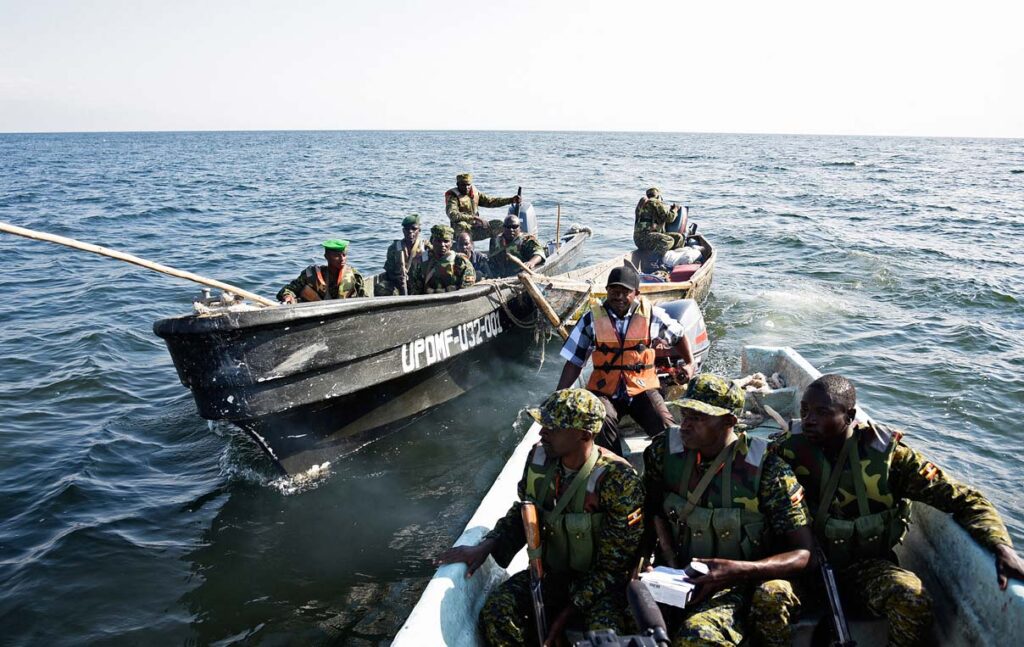
Regional Cooperation is Key
By Mamah Djiman Hairath
West African nations are strengthening partnerships to combat illegal, unreported, and unregulated (IUU) fishing. These efforts aim to address challenges within the blue economy, including sustainable resource management, improved governance, and the development of the fishing sector.
Since 2020, bilateral and multilateral agreements have gained momentum. In December 2022, Benin and Togo launched their first joint patrols, financed by the European Union (EU) through the PESCAO programme. By the end of 2023, Ghana had joined the initiative, which now includes sea patrols and information sharing through the Ghana Regional Monitoring, Control, and Surveillance Centre.
Established in May 2021 by the Fisheries Committee for the West-Central Gulf of Guinea (FCWC), this centre provides automatic identification systems to track vessels and shares data on authorised fishing activities.
Comments by Séraphin Dédi, Secretary General of the FCWC, highlight the significance of these efforts: “The establishment of the centre brings us closer to a coordinated strategy to undertake joint actions, including patrols aimed at improving security in our maritime domain.”
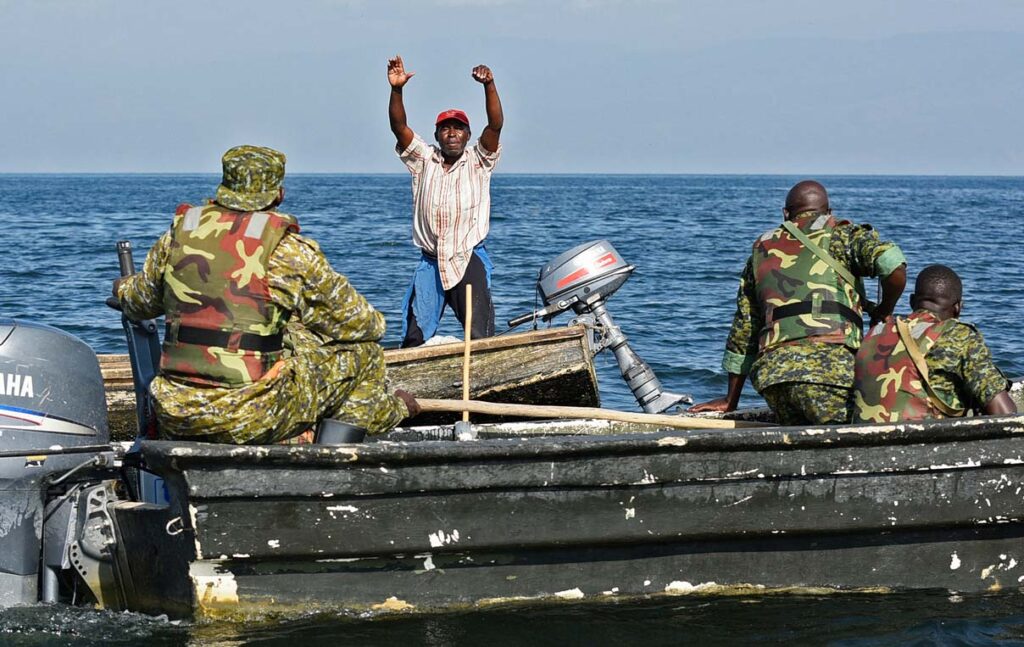
The collaboration has also drawn support from international organisations, including the European Fisheries Control Agency, the Regional Maritime Security Centre for West Africa, and Trygg Mat Tracking, which provides analytics for regional patrols.
IUU fishing costs West Africa an estimated $1.95 billion annually across the fish value chain and $593 million in household income. Beyond economic losses, illegal fishing exacerbates food insecurity and depletes fish stocks, undermining livelihoods in coastal communities. According to Duncan Copeland, Executive Director of Trygg Mat Tracking: “For decades, foreign trawlers, mainly Chinese, have targeted the region, leading to a sharp decline in fish stocks. Sea patrols are key to effective enforcement, but only when well-coordinated and informed.”
In September 2023, Senegal and Gambia signed a bilateral agreement to jointly combat IUU fishing and promote their local fishing industries. Under the agreement, each country grants 250 licences to artisanal fishing operators from the other. Musa Drammeh, Gambia’s Minister of Fisheries, emphasised its potential to improve fish stock assessments and enhance the surveillance of marine waters.
Yet, as highlighted in a May 2023 Amnesty International report, insufficient naval patrols allow industrial vessels to encroach on areas reserved for artisanal fishermen. This has further strained coastal communities dependent on dwindling marine resources.
To address overfishing, Ghana, Benin, and Togo also implemented a joint fishing closure period in 2023, halting industrial trawling for two months and artisanal fishing for one month. Paul Odartei Bannerman, Deputy Executive Director of Ghana’s Fisheries Commission, said these measures needed to be coordinated regionally to work. “The effect on fish stocks would be insignificant if only Ghana observed a closed season.”

The closures are part of a broader pact to rebuild fish stocks and curb destructive practices. But as fish wholesaler De Souza Amele told Africa in Fact: “At least the trawlers destroying our resources will no longer venture into these territorial waters during the agreed closure period.”
Morocco’s partnerships with several African nations – including Benin – have provided a model for fisheries development. Through the High-Level Conference of the Blue Belt Initiative held in January 2023, Morocco shared expertise in maritime training, scientific research, and aquaculture. Regular joint commission sessions now facilitate the exchange of experiences and formalise partnerships.
Gaston Cossi Dossouhoui, Benin’s Minister of Agriculture, praised Morocco’s contributions: “This approach helps countries in the sub-region acquire experience in maritime fisheries cooperation, focusing on sustainable solutions.”
Efforts to promote a sustainable blue economy extend beyond enforcement. Workshops and forums, such as the March 2023 Fez conference, have emphasised the importance of collaboration. Experts at the event stressed responsible resource management and the fight against overexploitation.
Marcelle Aka, spokesperson for the Media Observatory for Sustainable Fisheries, noted: “The importance of collaboration between states to address challenges in the blue economy is undeniable.” Meanwhile, Ernest Tindo, an international consultant in the blue economy, added: “Stakeholder involvement is essential to ensure the success of these initiatives.”
The collective actions of West African states demonstrate the power of unity in combating IUU fishing and fostering sustainable development. With strengthened regional agreements, improved surveillance, and shared knowledge, these efforts are vital to protecting marine resources and securing the future of the blue economy.

